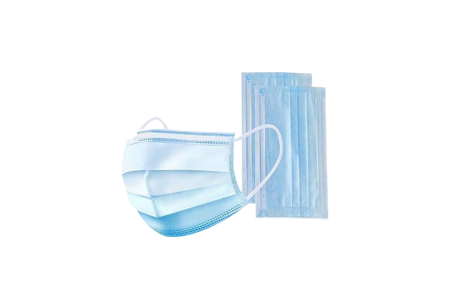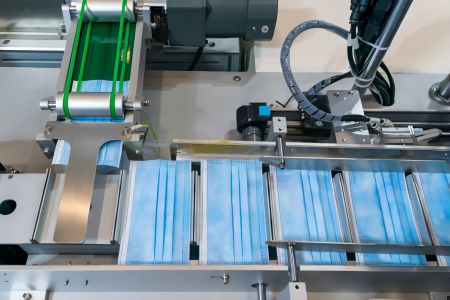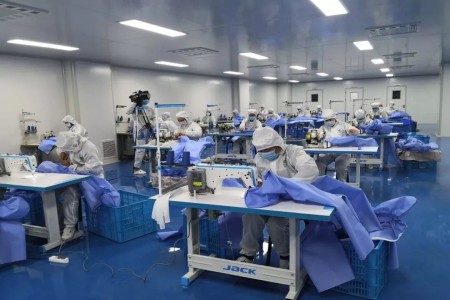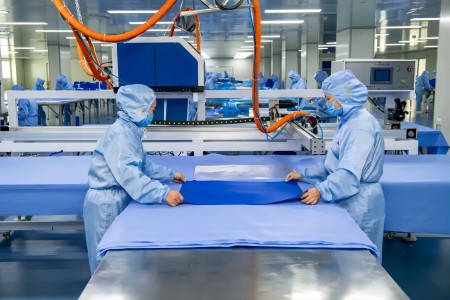2023/6/16

Does a Surgical Mask Help Avoid COVID-19?
In the new episode of COVID-19, employees are being monitored for signs of infection with the help of a wearable monitoring device. This device has been pre-programmed to look for specific organisms that are commonly associated with infections. If the employee does not wear a surgical mask, this will be flagged as suspicious and your management will be notified immediately. It’s important to keep track of these signs so that prevention measures can be taken if necessary. Using a surgical mask can reduce your risk of contracting or spreading germs in the workplace, but it’s important to understand how exactly they work and whether they are really necessary. Let’s take a look at what research says about using surgical masks in the workplace and how they can protect you from infectious diseases like influenza, anthrax and Legionnaires’ disease.
What is a Surgical Mask?
Surgical masks are worn like facial ones, but they are made of thin plastic that covers the nose and mouth. These masks are worn to protect against airborne diseases like influenza, tuberculosis and even Legionnaires’ disease. Some surgical masks are made of disposable material, while others can be worn several times before needing to be thrown away. It’s important to buy a mask that you’re comfortable wearing, especially if it’s your first time wearing one. Try to make sure that it fits snugly around your nose, mouth and neck so that it doesn’t fall off while you’re working.
Can a Surgical Mask Protect You from COVID-19?
They can help prevent certain airborne infection-causing microorganisms from being inhaled, but there are many other ways to prevent an infection from spreading in the workplace. For example, if you have a cold, you should stay home until you’re better. Employees with symptoms of COVID-19 that have been wearing a surgical mask have usually already spread the infection to others, so wearing a mask won’t help protect you from other employees. It’s also important to note that if you have a specific airborne infection, wearing a mask may not prevent you from being infected by other airborne infections. Surgical masks can prevent certain airborne infections, but they don’t protect you from getting other airborne infections that you might have without symptoms. If you have a specific airborne infection like influenza, wearing a mask could increase your risk of getting other airborne infections that don’t have the same protection against airborne infections. In addition, there are many different types of surgical masks, and some of them may not be effective at preventing COVID-19.
How Do Surgical Masks Work?
These masks are made of an absorbent material that removes moisture and particles from the air before it enters your nose and mouth. Absorbent material like gauze can be used to soak up bacteria and viruses, so the air can’t get into your body. Surgical masks can also have antimicrobial properties that kill microorganisms on the mask's surface. The antimicrobial properties of some masks may not be active when the mask is worn, so you may have to wash them frequently. For example, nasal masks are usually disposable, but you may want to wash them with soap and water to ensure their effectiveness.
Research on Wearing Surgical Masks in the Workplace
Many studies have been conducted to determine if wearing a surgical mask in the workplace can prevent the spread of airborne infectious diseases. All of these studies measured the number of infections that occurred with the use of a mask or without one, not how effective the mask was at preventing these infections. The studies also varied in design and participants, making it difficult to draw solid conclusions. In one such study, researchers found that employees wearing masks were less likely to become infected with bacteria and viruses than those who were not wearing a mask. However, the researchers also found that employees wearing masks were more likely to become infected with bacteria and viruses. Another study found similar results, with one difference: the employees in this study were also less likely to get sick from the airborne infections they carried. However, in both studies, wearing a non-woven face mask did not reduce other hazardous airborne substances like dust or asbestos in the air.
Conclusion
No evidence wearing a surgical mask in the workplace prevents COVID-19. Surgical masks can reduce the risk of some airborne infectious diseases, but they can also serve as a pathway for other airborne infections. The best way to prevent COVID-19 is to stay home if you have a cold. If you do choose to work, make sure you avoid contact with sick people and don’t touch your mouth, nose or eyes when you’re out of the office. These are all simple steps that can help protect you from COVID-19. With all that being said, surgical masks can protect you from airborne diseases such as influenza, tuberculosis and Legionnaires’ disease. You can also sanitize surgical masks with alcohol wipes or a disinfecting wipe. So, while they might not be the most effective, they are a good option for protecting yourself from airborne diseases.




 WhatsApp
WhatsApp
Send us your message
You can send an email asking for the price and detailed information of this product. We will reply you as soon as we receive your email